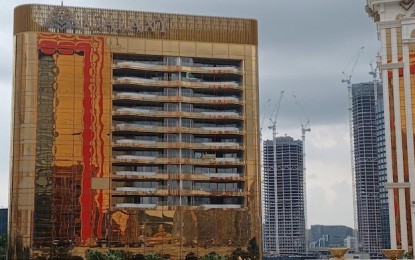Office building disposal helps Paradise Co achieve 2Q profit
Aug 11, 2021 Newsdesk Latest News, Rest of Asia, Top of the deck
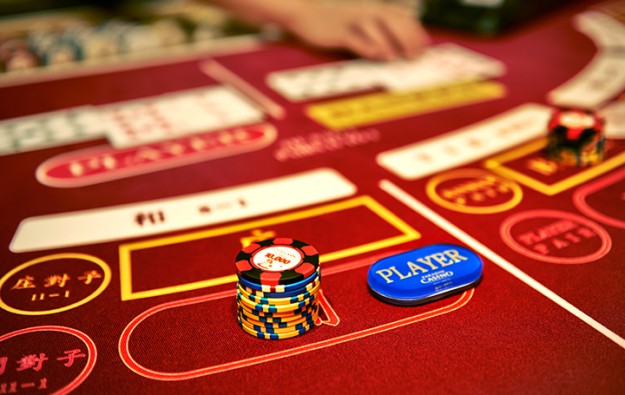
Paradise Co Ltd, an operator of foreigner-only casinos in South Korea, says its second-quarter net income stood at almost KRW18.91 billion (US$16.4 million), compared to a KRW18.20-billion net loss recorded in the preceding quarter. Paradise Co had posted a net loss of KRW31.88 billion in the second quarter of last year.
The company said in a Wednesday presentation that its results were positively affected by “one-off gains” related to the disposal of an office building linked to its Busan casino property.
The group’s casino sales in the second quarter fell by 14.0 percent year-on-year to just under KRW30.58 billion, and were down 19.2 percent from the first quarter, according to Wednesday’s presentation. Paradise Co said the lacklustre result was linked to the ongoing Covid-19 pandemic.
Paradise Co also stated that the single-greatest contributor in terms of second-quarter casino drop – the amount of cash exchanged for chips by customers at the table – were VIP patrons of a nationality other than either Japanese or Chinese, and contributing about 66.2 percent of the aggregate KRW497 billion recorded in the period. Mass-market players contributed KRW131 billion in the quarter.
The company said visitor traffic to its casino properties had “plunged” as South Korea was still imposing a 14-day quarantine on foreign travellers as a countermeasure against the Covid-19 pandemic.
Aggregate sales for the reporting period declined by 12.4 percent sequentially, to just under KRW84.65 billion, but were up 13.4 percent from a year earlier. According to Paradise Co, sales of hotel services for the period recorded a jump of 79.8 percent year-on-year and 39.1 percent judged sequentially, “thanks to strong local demand”.
Second-quarter earnings before interest, taxation, depreciation and amortisation (EBITDA) were negative to the tune of KRW2.54 billion. That compares with positive EBITDA of more than KRW12.93 billion in second-quarter 2020, and negative KRW18.26-billion in the first quarter of 2021.
The South Korean firm runs operations at Walkerhill in Seoul; Jeju Grand on Jeju Island; and Busan Casino in the southern port city of Busan. The firm also operates a foreigner-only gaming venue at Paradise City in Incheon, near South Korea’s main airport, under a venture with Japan’s Sega Sammy Holdings Inc.
Paradise Co’s second-quarter aggregate sales at Paradise City increased by 22.3 percent year-on-year to nearly KRW31.81 billion. Casino sales at the property during the period declined by 12.9 percent year-on-year to nearly KRW12.93 billion, which the group attributed to the impact of Covid-19. Quarter-on-quarter, casino revenue at the property was down by close to 53.9 percent.
During the reporting period, hotel sales at Paradise City improved in year-on-year terms, helped by easing of Covid-19-related social distancing measures imposed by the South Korean authorities, stated the South Korean firm in Wednesday’s presentation.
Several non-gaming facilities at the casino resort complex – including some entertainment venues and a number of food and beverage outlets – have been closed since July 2020. The indoor family theme park Wonder Box and spa facility Cimer were allowed to resume operations from July 16 this year.
Casino revenue at Paradise Co declined by 56.3 percent month-on-month in July, and by 60.0 percent judged year-on-year, said the company last week. The decline coincided with an uptick in Covid-19 infections in South Korea, a situation that at the end of July resulted in the authorities introducing so-called “Level 4″ social distancing protocols – the highest state of alert – for the Seoul and Incheon areas, two important operating markets for Paradise Co.
Related articles
-
 9-yr-old among 2,925 nabbed for online...
9-yr-old among 2,925 nabbed for online...Apr 25, 2024
-
 Red Dragon launches poker room,...
Red Dragon launches poker room,...Apr 22, 2024
More news
-
 Capella brand for new hotel at Galaxy...
Capella brand for new hotel at Galaxy...Apr 25, 2024
-
 Mainlanders still spend in Macau at...
Mainlanders still spend in Macau at...Apr 25, 2024
Latest News
Apr 25, 2024
Macau casino operator Galaxy Entertainment Group Ltd has announced Capella Hotels and Resorts as its brand partner for a new ultra-luxury hotel tower (pictured) at the Galaxy Macau resort, in the...Sign up to our FREE Newsletter
 (Click here for more)
(Click here for more)
Pick of the Day
"The travel demand for May Golden Week looks solid to us, which means good foot traffic in Macau"
Jeffrey Kiang
Analyst at brokerage CLSA
Most Popular
 Some Macau casino resort hotels flag no beds for May hols April 23, 2024
Some Macau casino resort hotels flag no beds for May hols April 23, 2024 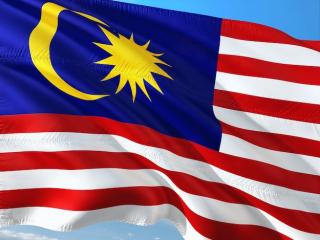 Malaysia govt mulls nation’s second casino says report April 25, 2024
Malaysia govt mulls nation’s second casino says report April 25, 2024 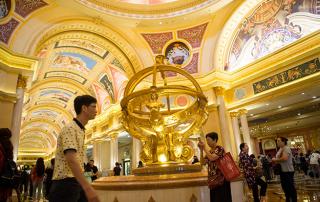 LVS group refinancing likely hailed by markets: CBRE April 23, 2024
LVS group refinancing likely hailed by markets: CBRE April 23, 2024 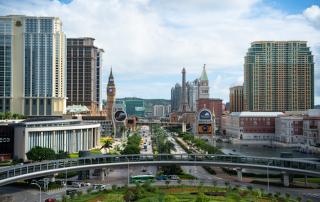 Labour hols Macau GGR, room rates likely below 2019: MS April 24, 2024
Labour hols Macau GGR, room rates likely below 2019: MS April 24, 2024 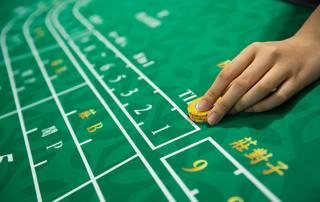 Macau casino GGR US$1.5bln for Apr 1 to 21: JP Morgan April 22, 2024
Macau casino GGR US$1.5bln for Apr 1 to 21: JP Morgan April 22, 2024



